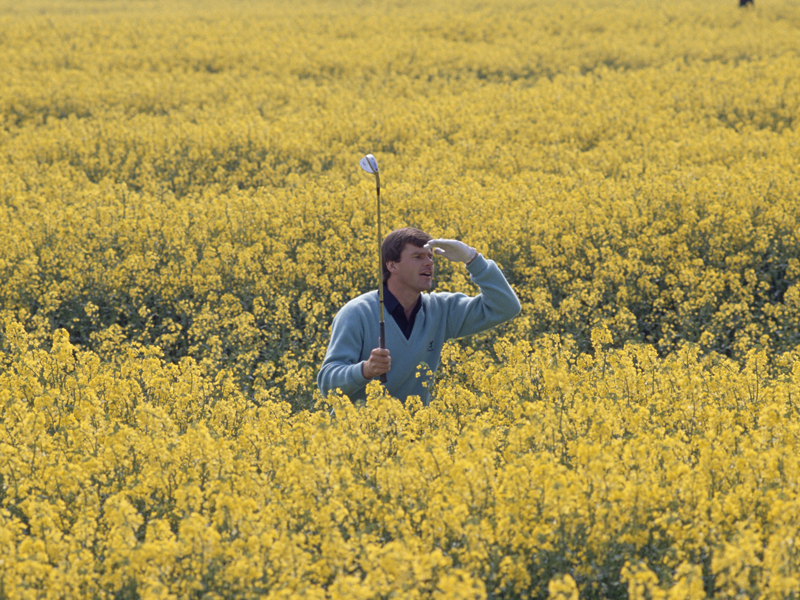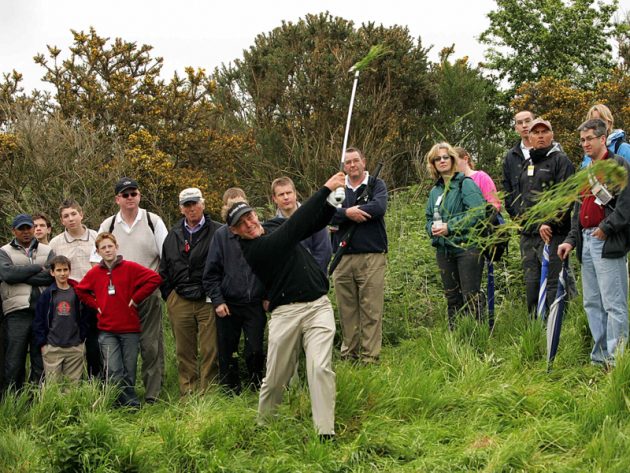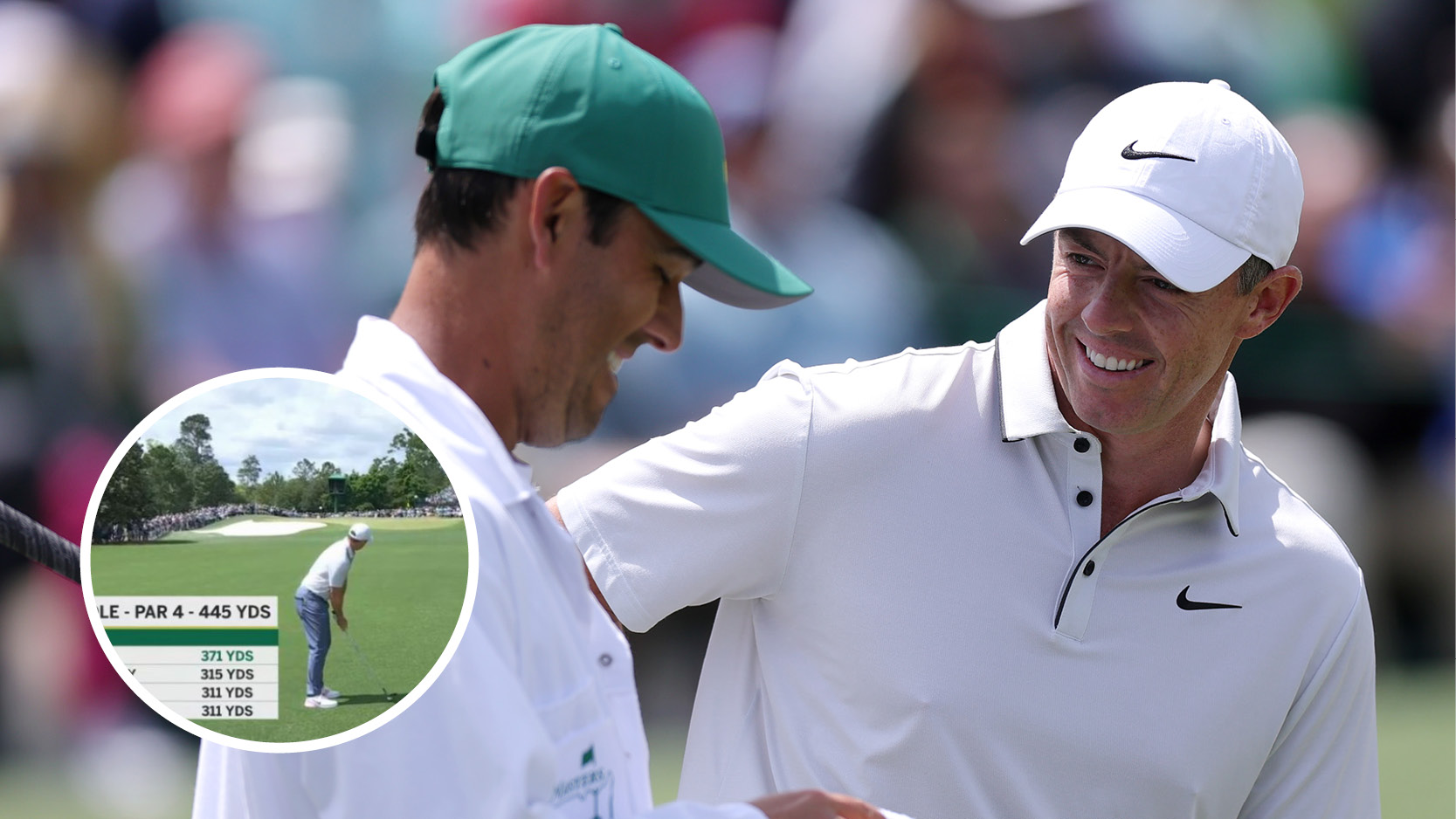Should More Golf Clubs Cut Back More Rough?
Is the game tough enough without overly punishing rough?


GM regulars Jeremy Ellwood and Fergus Bisset debate whether golf is tough enough without excessive punishing rough to contend with.
Should more golf clubs cut back more rough?
Yes says Jeremy Ellwood
The game itself is sufficient test for most without punitive rough and claustrophobic fairways.
Our disobedient swings, coupled with alarming levels of inconsistency, keep us on our toes without the added pressure of simply having to hit it straight to avoid time-consuming ball searches and copious hacks from the rough.
Last time you played a relatively open track with no real rough, did you rip it up as expected?
Probably not, for our inconsistencies and miscues often keep the scorecard ticking over faster than we would like.
Get the Golf Monthly Newsletter
Subscribe to the Golf Monthly newsletter to stay up to date with all the latest tour news, equipment news, reviews, head-to-heads and buyer’s guides from our team of experienced experts.
Did you play somewhere close to your handicap?
Far more likely, as each misdirected shot received punishment to fit the crime – perhaps blocked out by trees - rather than the draconian sentences meted out by thick rough.
Even when we do find our ball, we face further issues, for while the world’s best possess exquisitely timed swings that generate exceptional clubhead speed, most of us do not.
They have the skill and strength required to scythe through clumps of grass that, for us, are more ‘immovable object meets irresistible force’.
Most of us are playing for fun, and surely golf is more fun when we're not losing balls right, left and centre and hacking round in the rough.
As for rough under trees, we need to do away with that forever and let the trees themselves be the penalty as at Augusta National, where rough as we know it barely exists.
You’re still suitably punished by having to chip out sideways or attempt a risky escape, but there is no time wasted in searching for balls, or working out where to drop.
Golf would be all the better if we were merely attempting to spill as few shots as possible through our own limitations without the added foe of thick rough.
Should more golf clubs cut back more rough?
No says Fergus Bisset

Golf is hard.
This is what makes it such a compelling and compulsive activity.
To enjoy any modicum of success is to experience a most pleasing sense of achievement and satisfaction.
Reduce the level of difficulty, reduce the possible level of achievement and the opportunity to enjoy those most gratifying sensations.
Cutting back more of the rough is sanitising golf, lessening the test, making it worse.
At most traditional courses in the UK, the rough is the primary defence.
The majority of our historic tracks, constructed over links, park or heathland, are not protected by man-made water hazards or sprawling, costly bunker complexes.
The rough is the principal threat and it’s what defines many of our great holes.
Do we really want to be golfing over fully mown fields on holes with reduced definition and character? Surely not.
Graded rough puts a premium on accuracy, particularly from the tee, and consistent precision is something that all golfers should aspire to.
Those with the ability to hit a straight ball should be rewarded for it just as those with a tendency to wildness should be punished for it.
Fire just off target and a golfer should expect to find their ball in playable semi-rough, stray further off line and the penalty should be increasingly severe.
Imagine a hypothetical match play competition on a course with cut back rough:
Player one hits an arrow-straight drive down the centre cut of the fairway.
Player two then proceeds to hit a violent hook, 30 yards off line, only to find their ball sitting up in the now non-existent “rough.”
Both players are able to reach the green in regulation and both make par.
Player two has gone totally unpunished for what should have been a wholly destructive shot. That isn’t right.
The rough must remain and the wayward golfer must suffer its consequences.

Fergus is Golf Monthly's resident expert on the history of the game and has written extensively on that subject. He has also worked with Golf Monthly to produce a podcast series. Called 18 Majors: The Golf History Show it offers new and in-depth perspectives on some of the most important moments in golf's long history. You can find all the details about it here.
He is a golf obsessive and 1-handicapper. Growing up in the North East of Scotland, golf runs through his veins and his passion for the sport was bolstered during his time at St Andrews university studying history. He went on to earn a post graduate diploma from the London School of Journalism. Fergus has worked for Golf Monthly since 2004 and has written two books on the game; "Great Golf Debates" together with Jezz Ellwood of Golf Monthly and the history section of "The Ultimate Golf Book" together with Neil Tappin , also of Golf Monthly.
Fergus once shanked a ball from just over Granny Clark's Wynd on the 18th of the Old Course that struck the St Andrews Golf Club and rebounded into the Valley of Sin, from where he saved par. Who says there's no golfing god?
-
 Rory McIlroy Fires Back-To-Back 370-Yard Monster Drives In Birdie-Eagle-Birdie Start To Lead The Masters
Rory McIlroy Fires Back-To-Back 370-Yard Monster Drives In Birdie-Eagle-Birdie Start To Lead The MastersIt's safe to say that the four-time Major winner was full of adrenaline at the start of his third round, with McIlroy pounding two drives that measured a total of 740-yards
By Matt Cradock Published
-
 Who Is On Bryson DeChambeau’s Team? Coach, Caddie, Manager And More
Who Is On Bryson DeChambeau’s Team? Coach, Caddie, Manager And MoreBryson DeChambeau is one of the most high-profile and successful players of his era, but who are the team members helping to guide his career?
By Mike Hall Published